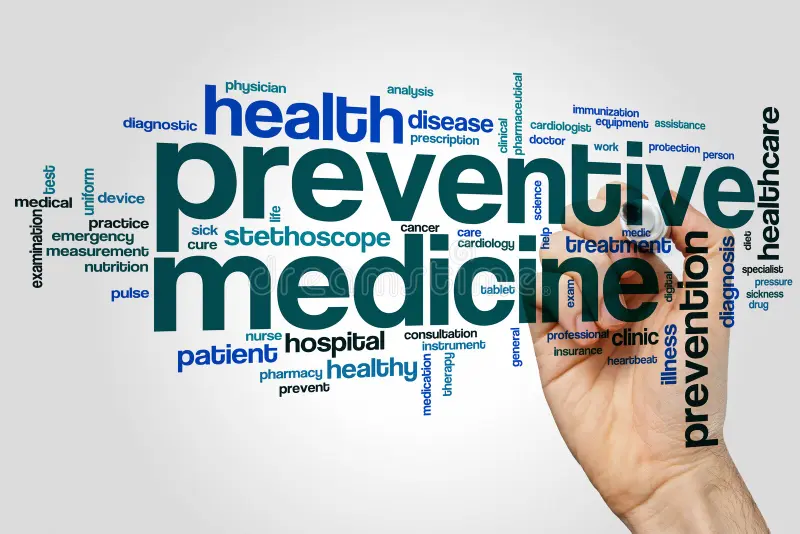
The Basics of Preventive Medicine: Small Changes, Big Impacts
Preventive medicine might sound like something out of a utopian future, however, in the bustle of the world today (where work and life have an uncanny knack of taking your time away from you), preventive health care is more important than ever. At the same time, including a few preventative measures in your daily routine may save you in the long run. Tiny, achievable changes can reduce your odds of developing life-threatening illnesses and boost your overall quality of life. We can even look inside the basics of preventative medicine to see how these small changes make a big difference.
What Is Preventive Medicine?
Preventive medicine aims to prevent diseases and ailments from forming. Preventive medical care attempts to prevent risk factors, and promote health rather than treating the disease once it has formed. Practicing this method not just aids in stopping the onset of ailment, but it enhances people’s general health.
1. Regular checks and screenings
Key tenets of preventive medicine are staying up to date on your annual physicals and various screenings. Visiting with your physician frequently may aid you in detecting problems that may be considered earlier to deteriorate. Standard CategoriesWhat an identification typically includes
Take Seriously Your Blood Pressure: Hypertension can lead to major risks of heart disease and stroke. In the case of the latter, regular observations make effective management possible.
Cholesterol: This monitors cholesterol levels and maintains a healthy heart.
Cancer Screenings: Mammograms, Pap tests, and colonoscopies are used to detect cancer early, when it is most treatable.
You can also receive personalized health advice with an examination depending on your risk factors and family history.
2. Nutritious Food Practices
The truth is, that food dramatically impacts your overall health. If you eat a balanced diet, then it helps to avoid major chronic illnesses like obesity, diabetes, and heart disease. Some of the simple changes in your diet include:
Consuming More Fibre: Foods high in fiber, such as whole grains, legumes, and vegetables, help to maintain digestive health and reduce the risk of heart disease.
Reducing Salt and Sugar: Reducing the amount of processed meals that are high in sugar and salt can help control weight and blood pressure.
Maintaining Hydration: Consuming copious amounts of water promotes healthy skin, digestion, and overall body functions.
3. Regular Physical Activity
Exercise is a powerful tool for disease prevention and overall health. Aim for at least 150 minutes of moderate aerobic activity or 75 minutes of vigorous activity each week, combined with muscle-strengthening exercises. Benefits of regular physical activity include:
- Improved Cardiovascular Health: Exercise helps lower blood pressure and cholesterol levels.
- Better Weight Management: Regular activity supports a healthy weight and reduces the risk of obesity.
- Enhanced Mood and Mental Health: Physical activity releases endorphins, which can improve mood and reduce symptoms of depression and anxiety.
4. Adequate Sleep
Never underestimate the power of a good night’s sleep. Quality sleep is essential for physical and mental health. Aim for 7-9 hours of sleep per night. Good sleep hygiene practices include:
- Maintaining a Consistent Sleep Schedule: Going to bed and waking up at the same time each day helps regulate your body’s internal clock.
- Creating a Relaxing Bedtime Routine: Activities like reading or taking a warm bath before bed can promote better sleep.
5. Stress Management
Chronic stress can negatively impact your health, leading to issues such as high blood pressure, heart disease, and a weakened immune system. Effective stress management techniques include:
- Mindfulness and Meditation: Practices such as meditation, deep breathing exercises, and yoga can help reduce stress levels.
- Regular Physical Activity: Exercise is not only good for physical health but also helps alleviate stress.
- Social Connections: Maintaining strong relationships and seeking support from friends and family can help manage stress effectively.
6. Avoiding Harmful Behaviors
Preventive medicine also involves avoiding behaviors that can lead to health problems. This includes:
- No Smoking: Tobacco use is a leading cause of preventable diseases, including cancer and lung disease. If you smoke, seek resources to help quit.
- Moderating Alcohol Consumption: Excessive alcohol intake can lead to liver disease and other health issues. The key is moderation.
Conclusion
Incorporating these small changes into your daily routine can have a significant impact on your health and well-being. By focusing on preventive measures, you can reduce your risk of chronic diseases, enhance your quality of life, and enjoy a healthier, more fulfilling life. Remember, it’s not about making drastic changes overnight but about consistent, manageable steps toward a healthier you. Start with one or two changes, build on your successes, and gradually create a routine that supports long-term health and vitality.
Embrace the power of preventive medicine today, and take control of your health for a brighter, healthier tomorrow.


